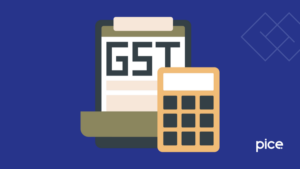GST’s Effect on India’s Healthcare Sector
- 31 Aug 24
- 12 mins
GST’s Effect on India’s Healthcare Sector
- GST's Influence on Healthcare Services
- GST's Role in the Pharmaceutical Sector
- GST's Impact on Healthcare Infrastructure
- GST's Effect on Healthcare Affordability
- The Overall Effect of GST on Healthcare Services
- GST Exemptions
- Benefits of GST for Healthcare Services
- Drawbacks of GST for Healthcare Services
- Potential Impact on Medical Tourism
Key Takeaways
- GST has significantly impacted the cost and delivery of healthcare services in India, affecting both essential and ancillary services.
- The pharmaceutical industry faces challenges under GST due to the inverted duty structure, increasing the cost of manufacturing life-saving medicines.
- Healthcare infrastructure development has become more expensive under GST, particularly due to taxes on construction materials and medical equipment.
- While GST simplifies tax compliance, it has also raised concerns about the affordability of healthcare services, especially due to increased costs passed on to patients.
- The increased cost of medical services under GST may affect India's competitiveness in the global medical tourism market, potentially impacting the sector's growth.
GST's Influence on Healthcare Services
GST has had a profound influence on healthcare services in India, affecting how these services are taxed and delivered. Under the GST regime, the definition of healthcare services is broad, encompassing a wide range of medical services provided by hospitals, clinics, and diagnostic centres. While most essential healthcare services, including those provided by Government hospitals and clinical establishments, are exempt from GST, there are still some major concerns regarding the indirect costs passed on to patients.
For instance, ancillary services like food and accommodation provided by hospitals are not exempt and attract GST, which increases the overall cost of healthcare. Ambulance services, though exempt from GST, also face indirect cost pressures due to increased operational efficiency requirements. Additionally, the tax on medical equipment and consumables such as human blood vaccines and cord blood banks has raised the manufacturing cost, indirectly impacting the pricing of healthcare services. The healthcare sector must navigate these changes while maintaining the affordability and accessibility of medical services for patients.
GST's Role in the Pharmaceutical Sector
The pharmaceutical industry in India has been significantly impacted by the GST, primarily through the changes in the tax structure and the application of the inverted duty structure. Before GST, pharmaceuticals were subject to various taxes, including Central Sales Tax, which often resulted in higher costs. With the introduction of GST, a uniform tax rate was implemented, which simplified the tax compliance process but also introduced challenges.
One of the major concerns is the inverted duty structure, where the tax rate on raw materials is higher than the tax rate on finished goods, affecting the cash flow and increasing the cost of manufacturing life-saving medicines. This has made it difficult for pharmaceutical companies to maintain their margins while keeping their products affordable. The GST regime has also affected the supply of medicines and medical products, with an increased focus on compliance and the need for efficient tax credit management. Despite these challenges, the streamlined tax structure under GST has the potential to enhance operational efficiency in the pharmaceutical industry.
GST's Impact on Healthcare Infrastructure
Healthcare infrastructure, which includes hospitals, diagnostic centres, and medical equipment, has also been impacted by GST. The cost of setting up and maintaining healthcare infrastructure has increased due to the application of GST on construction materials and medical equipment. While healthcare services are largely exempt from GST, the tax on inputs like construction and medical equipment increases the overall cost of healthcare infrastructure development.
Moreover, the GST on ancillary services provided by hospitals, such as diagnostic services and alternative medicine practices, adds to the financial burden on healthcare providers. This increase in cost can potentially affect the expansion plans of healthcare service providers, especially in rural areas where healthcare infrastructure is already lacking. However, the input tax credit mechanism under GST allows healthcare providers to claim credits for the taxes paid on inputs, which can offset some of the additional costs and improve the flow of credits within the healthcare supply chain.
💡 If you want to pay your GST with Credit Card, then download Pice Business Payment App. Pice is the one stop app for all paying all your business expenses.
GST's Effect on Healthcare Affordability
The introduction of GST has raised concerns about the affordability of healthcare services in India. While essential healthcare services are exempt from GST, the indirect costs associated with GST on medical equipment, pharmaceuticals, and ancillary services are often passed on to patients. This has led to an increase in the cost of insurance and out-of-pocket expenses for healthcare services, making healthcare less affordable for the average consumer.
The GST on life-saving drugs and medical equipment, although aimed at creating a uniform tax structure, has also contributed to the rising costs. For example, the GST applied to Ayurvedic Medicines and other alternative medicine practices has increased the overall cost of these treatments, which were previously taxed at lower rates. Despite these challenges, the input tax credit system provides some relief by allowing healthcare providers to claim credits for the taxes paid on inputs, which can help reduce the overall tax burden. However, the impact of GST on healthcare affordability remains a significant concern for both patients and healthcare providers.
The Overall Effect of GST on Healthcare Services
Overall, GST has brought about significant changes in the healthcare industry, impacting everything from the cost of services to the supply of healthcare products. While the aim of GST was to simplify the tax structure and improve compliance, its implementation has resulted in both positive and negative effects on the healthcare sector. The positive effects include a more streamlined tax compliance process, with GST replacing multiple taxes like Central Sales Tax and excise duty, leading to a more efficient tax system.
However, the negative effects, such as the increased cost of medical equipment and pharmaceuticals due to the inverted duty structure, have raised concerns about the long-term impact on the healthcare industry. The additional costs associated with GST have also affected the overall operational efficiency of healthcare service providers, making it more challenging to maintain affordable healthcare services. As the healthcare sector continues to adapt to the new GST regime, ongoing adjustments and reforms may be necessary to balance the needs of the industry with the goals of the GST system.
GST Exemptions
One of the key aspects of GST's impact on the healthcare sector is the exemptions provided to certain healthcare services and products. Essential healthcare services, including treatments provided by Government hospitals, clinical establishments, and medical practitioners, are exempt from GST. This exemption is crucial for maintaining the accessibility and affordability of basic healthcare services for the population.
However, not all healthcare-related services are exempt. For instance, the supply of healthcare services that includes a composite supply of accommodation and food, as well as certain ancillary services, may attract GST, which increases the overall cost for patients. Medical services related to life-saving drugs and diagnostic centres are also impacted, with some products like human blood vaccines being exempt, while others are taxed. These exemptions are designed to balance the need for revenue generation with the goal of ensuring that essential healthcare services remain affordable for the public.
Benefits of GST for Healthcare Services

- Simplified Tax Structure: GST replaces the complex and fragmented system of multiple indirect taxes with a single, unified tax. This simplification makes it easier for healthcare providers to manage tax compliance, reducing administrative burdens and allowing them to focus more on delivering quality healthcare services.
- Input Tax Credit Mechanism: Under GST, healthcare providers can claim input tax credits for the taxes paid on inputs such as medical equipment, pharmaceuticals, and other supplies. This mechanism helps reduce the overall tax liability for healthcare providers, potentially leading to cost savings that can be passed on to patients.
- Improved Flow of Credits: The introduction of GST has created a more streamlined flow of credits within the healthcare supply chain. This ensures that taxes are only paid on the value added at each stage, reducing the cascading effect of taxes and making the entire tax process more transparent and efficient.
- Streamlined Compliance: GST simplifies the compliance process by consolidating various taxes into one, thereby reducing the burden of managing multiple tax filings and compliance requirements. This includes easier management of business compliances, such as direct tax compliance and secretarial compliance, which benefits healthcare providers in managing their operations.
- Operational Efficiency: The uniformity in taxation under GST promotes greater operational efficiency within the healthcare sector. With a standardized tax system across states, healthcare providers can better plan their logistics, procurement, and service delivery, leading to more efficient operations and potentially lower costs for consumers.
Drawbacks of GST for Healthcare Services
- Increased Cost of Healthcare Services: The imposition of GST on inputs like medical equipment, consumables, and pharmaceuticals has led to an increase in the cost of providing healthcare services. These additional costs are often passed on to patients, making healthcare services more expensive and potentially less accessible.
- Inverted Duty Structure: In the pharmaceutical sector, the inverted duty structure under GST, where the tax rate on raw materials is higher than that on finished products, creates cash flow issues. This increases the cost of manufacturing life-saving medicines, which can negatively impact both the industry’s profitability and the affordability of essential drugs.
- Impact on Healthcare Infrastructure: The additional costs imposed by GST on construction materials, medical equipment, and other inputs have made the development and maintenance of healthcare infrastructure more expensive. This has particularly affected the expansion of healthcare facilities in rural and underserved areas, where the need for affordable healthcare is greatest.
- Higher Costs for Ancillary Services: GST is applied to ancillary services provided by hospitals, such as food, accommodation, and certain diagnostic services. These additional taxes increase the overall cost of healthcare for patients, especially those requiring extended hospital stays or specialized treatments.
- Challenges in Medical Tourism: The increased cost of medical services, products, and insurance due to GST has raised concerns about India’s competitiveness in the global medical tourism market. The higher costs could make India less attractive as a destination for affordable and high-quality medical treatments, potentially impacting the growth of this sector.
Potential Impact on Medical Tourism
Medical tourism is an important segment of the healthcare industry in India, attracting patients from around the world for high-quality and affordable medical treatments. The introduction of GST has had a mixed impact on this sector. On one hand, the uniform tax structure under GST has simplified the tax compliance process for healthcare providers involved in medical tourism, making it easier to manage business operations.
On the other hand, the increased cost of medical services and products due to GST has raised concerns about India's competitiveness in the global medical tourism market. The cost of insurance, medical equipment, and life-saving medicines, all of which are affected by GST, could make medical treatments in India more expensive compared to other countries. Additionally, the application of GST on alternative medicine practices and Ayurvedic Medicines, which are popular among medical tourists, could impact the attractiveness of India as a destination for medical tourism. Balancing the need for revenue generation with the goal of maintaining India's competitive edge in medical tourism will be crucial for the future growth of this sector.
 By
By 
















